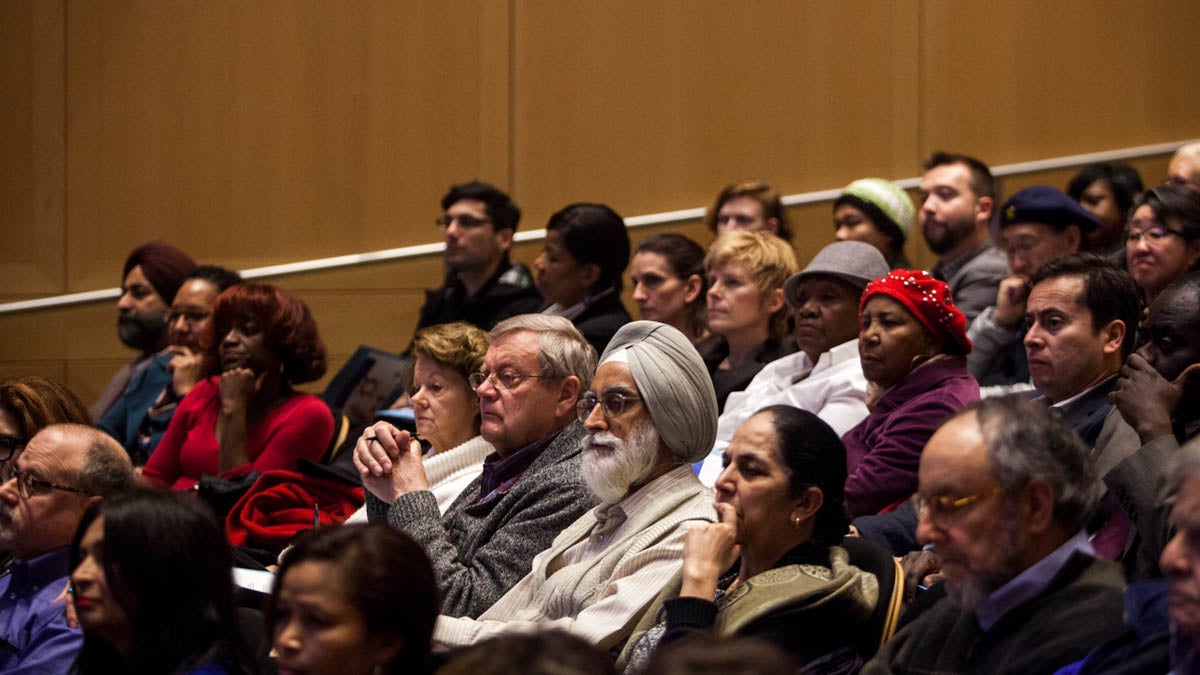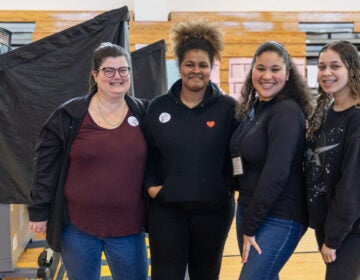Philly police, prosecutors reaching out, hoping to deter hate crimes

A conference on "Unifying our Communities: Responding to Hate" draws a diverse crowd to the National Constitution Center in Philadelphia Wednesday night. (Brad Larrison/ for NewsWorks)
Though police and state and federal prosecutors who gathered Wednesday night never mentioned President-elect Donald Trump by name, the backdrop was clear: There has been a spike in reported hate crimes since the November election, and some of it is thought to be fueled by Trump’s inflammatory comments.
Anti-discrimination groups teamed up with Philadelphia police, members of the FBI and prosecutors in the U.S. attorney’s office for a public discussion at the Constitution Center about how authorities and citizens can combine forces to combat hate crimes.
“This is something that we are doing in response to the upsurge in hate crime and bias incidents,” said Robert Reed, executive U.S. attorney based in Philadelphia.
Reed said prosecutors are ramping up outreach, including to Philadelphia’s Arab, Muslim, Sikh and Southeast Asian communities.
They hope to catch and prosecute more hate-crime perpetrators this way.
“That sends a message,” Reed said. “I know that people don’t like to say that as much any more, but the reality is that that’s sometimes a deterrent. And also, letting victims and witnesses and people in a community know that we’re taking this seriously.”
In the Philadelphia area, the Anti-Defamation League and the Philadelphia Commission on Human Relations have reported surges in reported hate and bias crimes since Trump’s election.
Nancy Baron-Baer, regional director of the Anti-Defamation League, said her group has received four times as many citizen complaints of bias and hate incidents in November, and twice as many in December compared to those months in 2015. Most of the episodes occurred in schools, she said.
“There is no question that students who may be from an immigrant background are feeling more in distress, more worried and more fearful. People need to be aware of how to recognize what they might be seeing, and understand how they should be dealing with situations like that,” Baron-Baer said.
WHYY is your source for fact-based, in-depth journalism and information. As a nonprofit organization, we rely on financial support from readers like you. Please give today.




